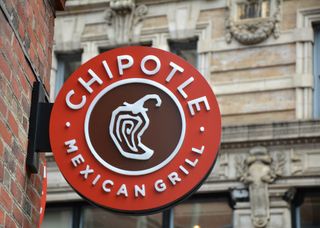Chipotle’s marketing email hacked to send phishing emails
Over 120 emails attempted to steal login credentials from victims

Hackers have abused an email account linked to the Chipotle restaurant chain to send phishing emails to unsuspecting victims.
According to cyber security company Inky, between July 13 and 16 this year, researchers detected 121 phishing emails in a similar attack that originated from a compromised Mailgun email marketing account used by the chain.
It said that of those 121 attacks, two were fake voicemail notifications with malware attachments (also known as vishing), 14 impersonated USAA Bank and had mail.company[.]com links that redirected to a malicious USAA Bank credential-harvesting site, and the other 105 impersonated Microsoft and had mail.company[.]com links that redirected to a malicious Microsoft credential-harvesting site.
Researchers said the bulk of the attacks impersonate Microsoft. The giant software company is often the subject of impersonations because Microsoft credentials are highly valuable.
“Almost everyone has a Microsoft account, and logins there can lead to all kinds of interesting data, including other logins, trade secrets, financial details, and other intelligence,” said researchers.
Researchers said the attacks were highly effective because all phishing emails came from an authentic Mailgun IP address (166.78.68.204), passed email authentication (SPF and DKIM) for company[.]com, and used high reputation mail.company[.]com URLs as redirectors to malicious sites.
Niamh Muldoon, Global Data Protection Officer at OneLogin, told ITPro that she predicted we might hear more about these types of breach disclosures as well as privacy-related fines being imposed on companies contracting marketing platform providers.
Get the ITPro. daily newsletter
Receive our latest news, industry updates, featured resources and more. Sign up today to receive our FREE report on AI cyber crime & security - newly updated for 2024.
“Oftentimes the data is left within these platforms with sites left on the internet after marketing or conference events, and security monitoring as well as alerting is not in place, making them easy targets for attack,” she said.
“We all know these platforms process and store data that is in demand (contact details) and therefore, easily sold on dark web and/or to sales teams. How many times have you received an email asking you if you were interested in buying a leads list? This is likely just one of many cases we’ll hear this year of marketing accounts being hacked.”
Jamie Akhtar, CEO and co-founder of CyberSmart, told ITPro that hackers are often quick to adapt their strategies to increase their chances of success. As is the case here with Chipotle, cyber criminals have recognized that sending emails from a legitimate address can go a long way in deceiving individuals.
“Unfortunately, phishing attempts have become so sophisticated that our general advice for spotting suspicious emails may be becoming outdated. Security awareness training remains pivotal but greater emphasis should be placed not solely on spotting these emails but also reporting them so that we may collectively learn the latest tactics of these hackers and prevent others from getting caught up in it,” he said.
Rene Millman is a freelance writer and broadcaster who covers cybersecurity, AI, IoT, and the cloud. He also works as a contributing analyst at GigaOm and has previously worked as an analyst for Gartner covering the infrastructure market. He has made numerous television appearances to give his views and expertise on technology trends and companies that affect and shape our lives. You can follow Rene Millman on Twitter.





